The gap between ambition and action on plastic is stark. Ambitious-but-unfulfilled global plastic commitments feel empty against a backdrop of ever-increasing production.
To help bridge this gap, rePurpose Global launched the Plastic Reality Project to inspire sustainability leaders and spark more effective action to tackle plastic pollution.
Our inaugural cohort kicked off in fall 2022 with a week-long trip to Tamil Nadu and Kerala in India. In this immersive, week-long experience, attendees experienced first-hand the realities of plastic pollution. They also experienced rePurpose’s partners’ waste management solutions and collaborated to discuss strategies for a cleaner planet, and a more circular economic system.
The photo essay below walks through highlights from the experience, featuring thought-provoking photography from Venkat Balaji.
During the Plastic Reality Project's introductory session, Roshan Miranda, Director and co-founder of Waste Ventures India, talks attendees through some of the waste management challenges in urban Chennai – part of a metropolitan area housing over 12 million people.

Attendees gather at the municipal solid waste site in Tambaram, Chennai.
Kamal Raj from rePurpose Global provides context for attendees, explaining how the site sprung up unintentionally in a former truck depot. Informal waste pickers have set-up operations directly outside the site to collect and sell plastic bottles and other materials with market value.
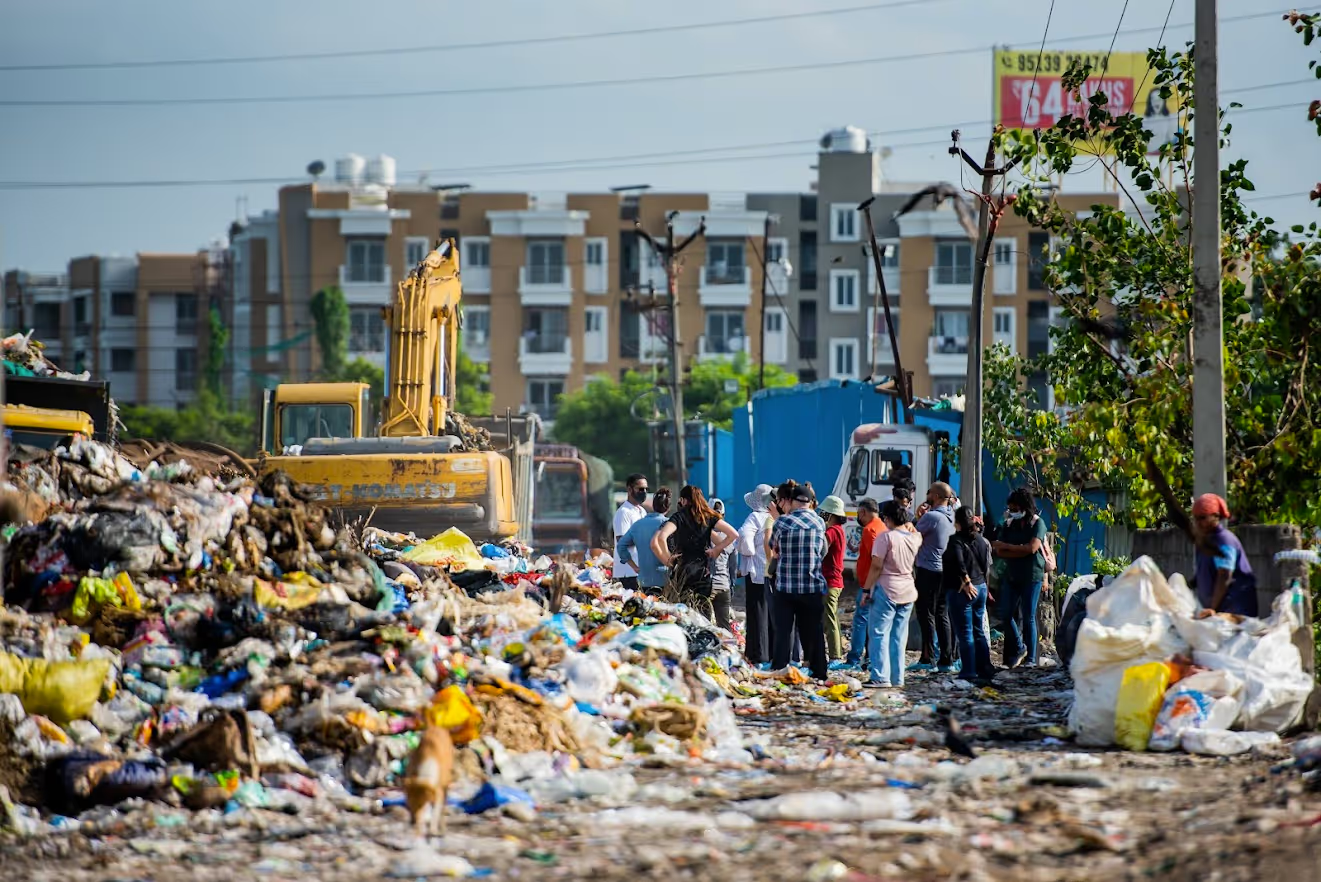
The Adyar river is one of the main waterways that flows through Chennai. Attendees witnessed cows on the banks of the Adyar river picking through burning piles of trash for food, chewing on scraps of plastic.
Burning trash is a common sight in many countries, where it is a less expensive and lower-effort option than paying for waste collection and sorting services.

The Adyar river is used as a dumping ground for waste. With river levels much higher during the monsoon season, much of the waste deposited along its banks is eventually carried out into the ocean.
Here, Salma Fotovat from Riverside Natural Foods, and Nicolette Stosur-Bassett from rePurpose Global walk side-by-side through the river bed near Tambaram, Tamil Nadu.
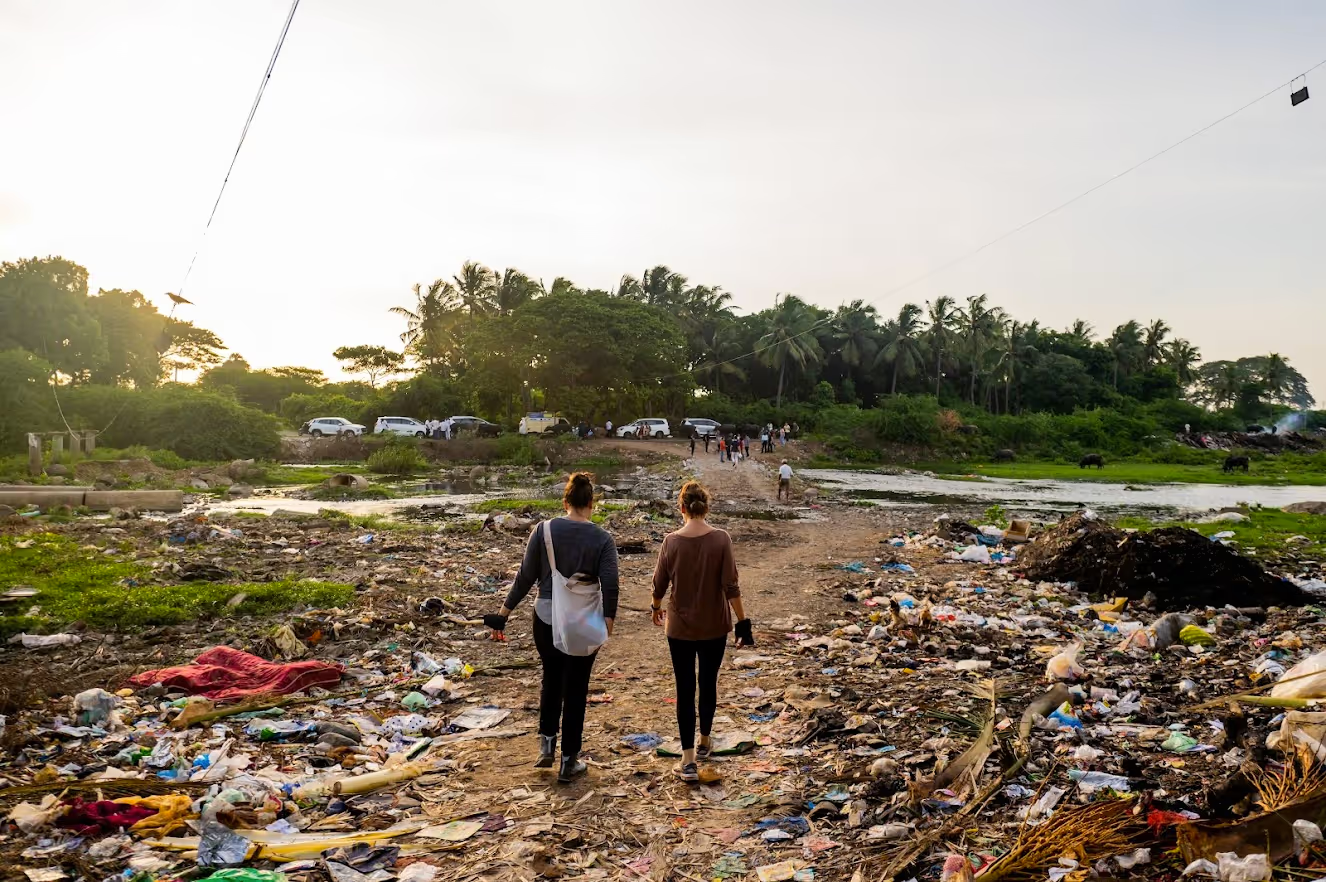
Attendees visit another waste dump on the way to Anakaputhur. Pictured is a resident of one of the informal settlements that has sprung up nearby.
This particular mountain of waste (in the background) used to be much higher – so much so that the buildings behind would not have been visible. Bio-mining (mechanical extracting of composted organic waste) has led to the pile’s reduction in height.
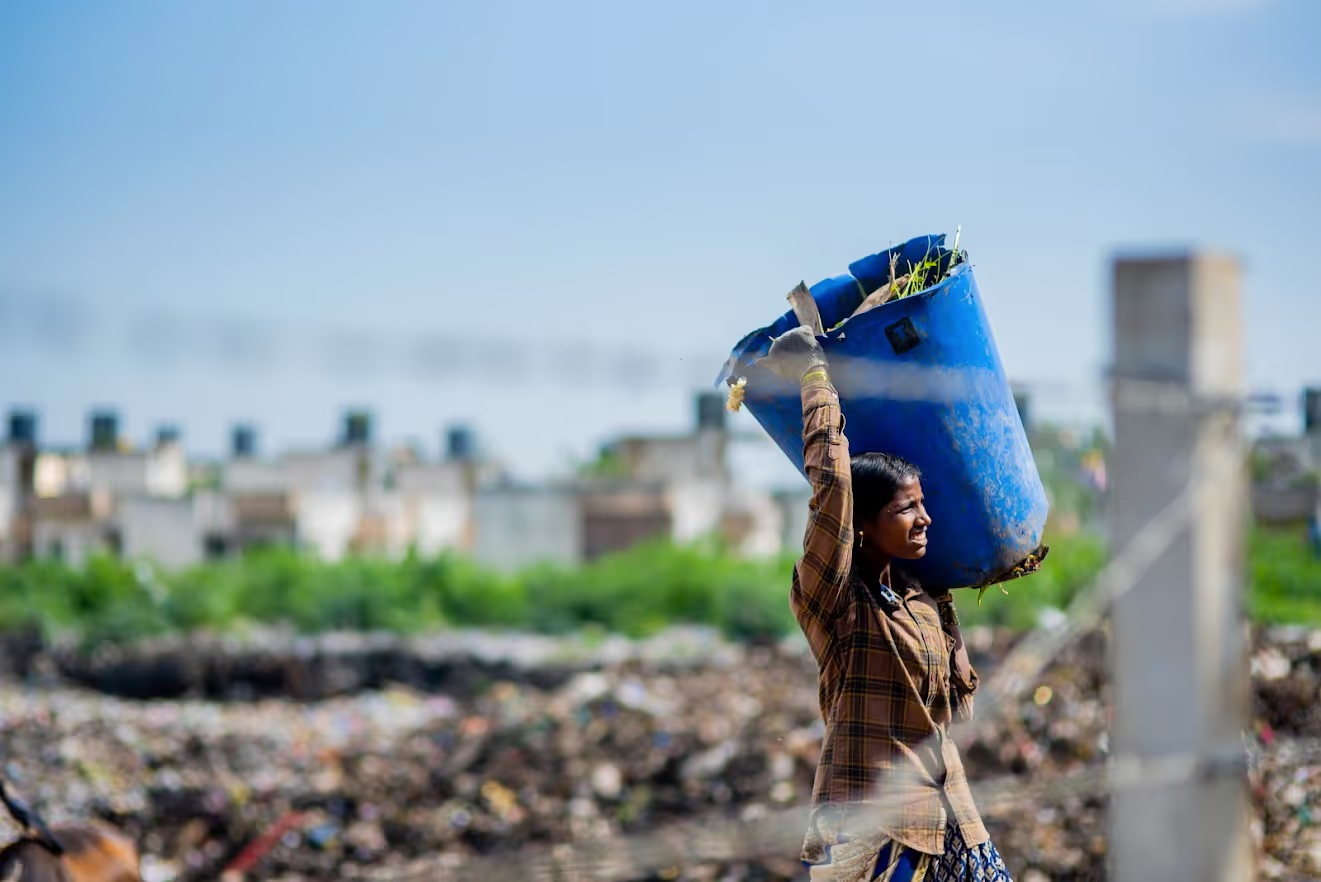
More residents of the informal settlement near Anakaputhur.
Thousands of children across India grow up next to dump sites. These informal settlements often develop as other areas in large cities are expensive or uphold restrictions on unplanned housing. In some cases, entire families may be involved in sifting through waste to recover valuable materials. Children growing up next to dump sites will likely be exposed to the many health risks associated with piles of mixed waste.

At the Waste Ventures India (WVI) MRF in Gerugambakkam, some of the waste workers arrive for work.
The facility operates exclusively on behalf of rePurpose Global. rePurpose funded the set up and initial development of the facility, and supported with the facility’s design. There are now 18 workers formally employed, including the women pictured, who receive fair wages, paid leave, and medical insurance.

At the WVI MRF, Roshan Miranda holds up packaging from a Riverside Natural Foods product found amongst the waste – much to the surprise of attendee Sathyam Rajanah from Riverside who explained:
“We were watching some of the waste warriors open up the bags and funnily enough, I saw the lady pick up a purple carton. I thought to myself “I know this purple, I've seen this before - iIt's definitely one of our products!” It was a very surreal moment. We might be producing in North America, but they have a real impact all the way across the world.”
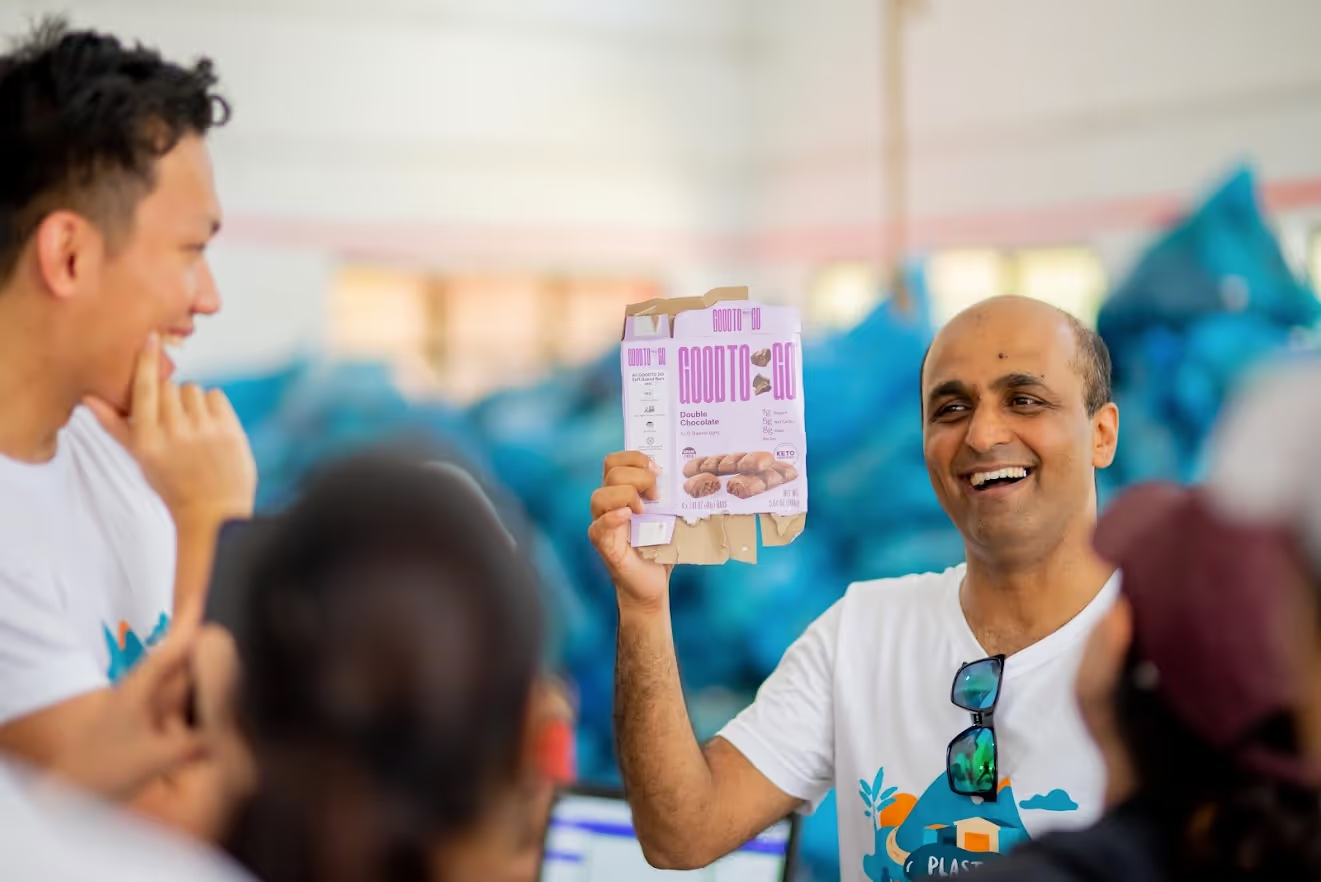
John Smieja from GreenBiz, and the rest of the attendees join in a waste identification activity at the WVI MRF.
Attendees were shown ‘a day in the life of a waste worker’ with a walk-through of how the waste gets sorted. They also had the chance to get ‘hands on’ with a timed waste sorting challenge to develop an understanding of the deep knowledge that waste workers have about material composition and recyclables.
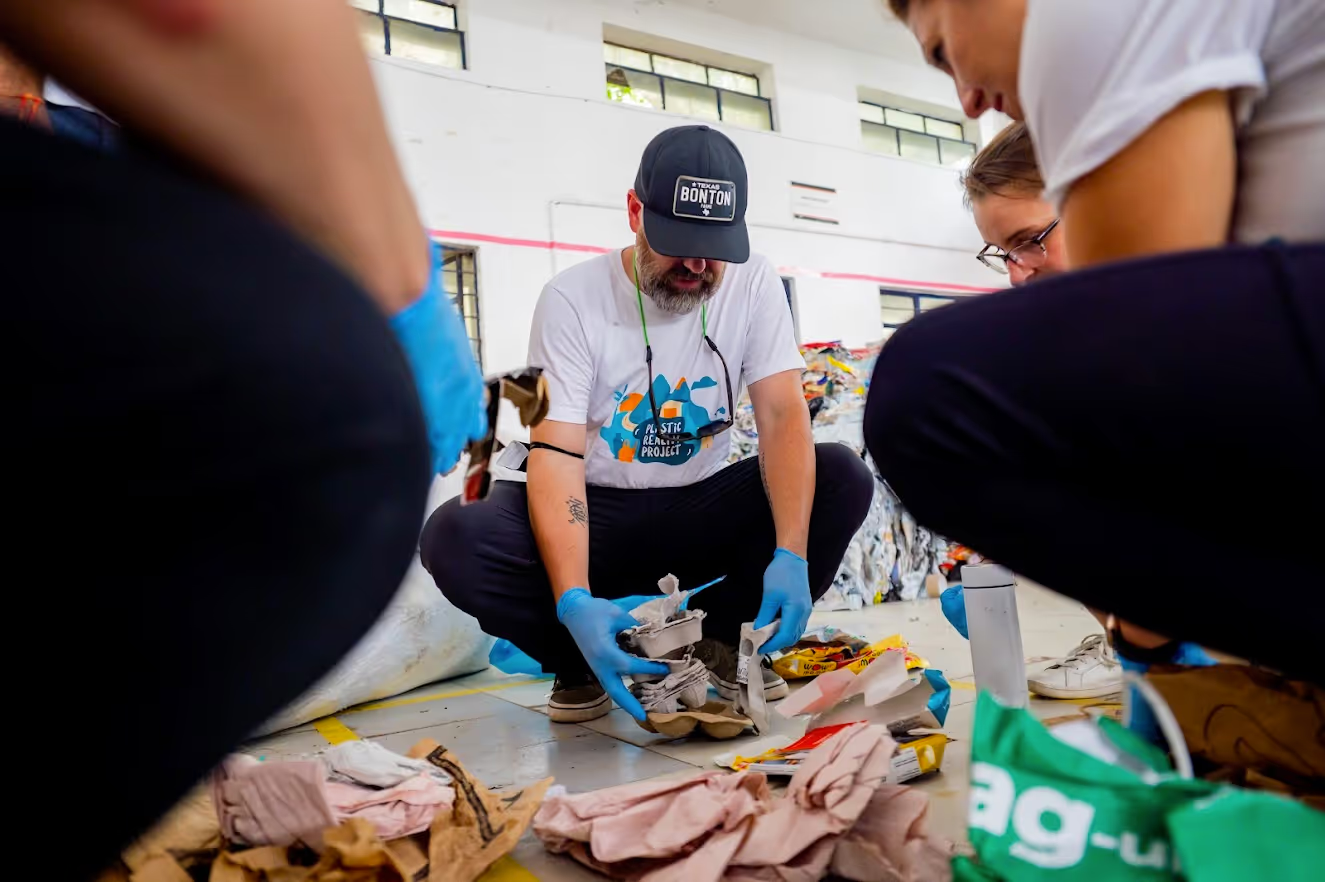
Doreen Wong from Sustainable Ocean Alliance sorts through household plastics, alongside rePurpose Global’s Aditya Siroya and Vrishi Reddy, at the WVI MRF in Gerugambakkam.
Kristen Smith from the Pet Sustainability Coalition shared:
“I was just so impressed with how quickly the workers were able to do what groups of us couldn't do. With five times as much time, we still couldn't sort a pile as quickly as they could!”
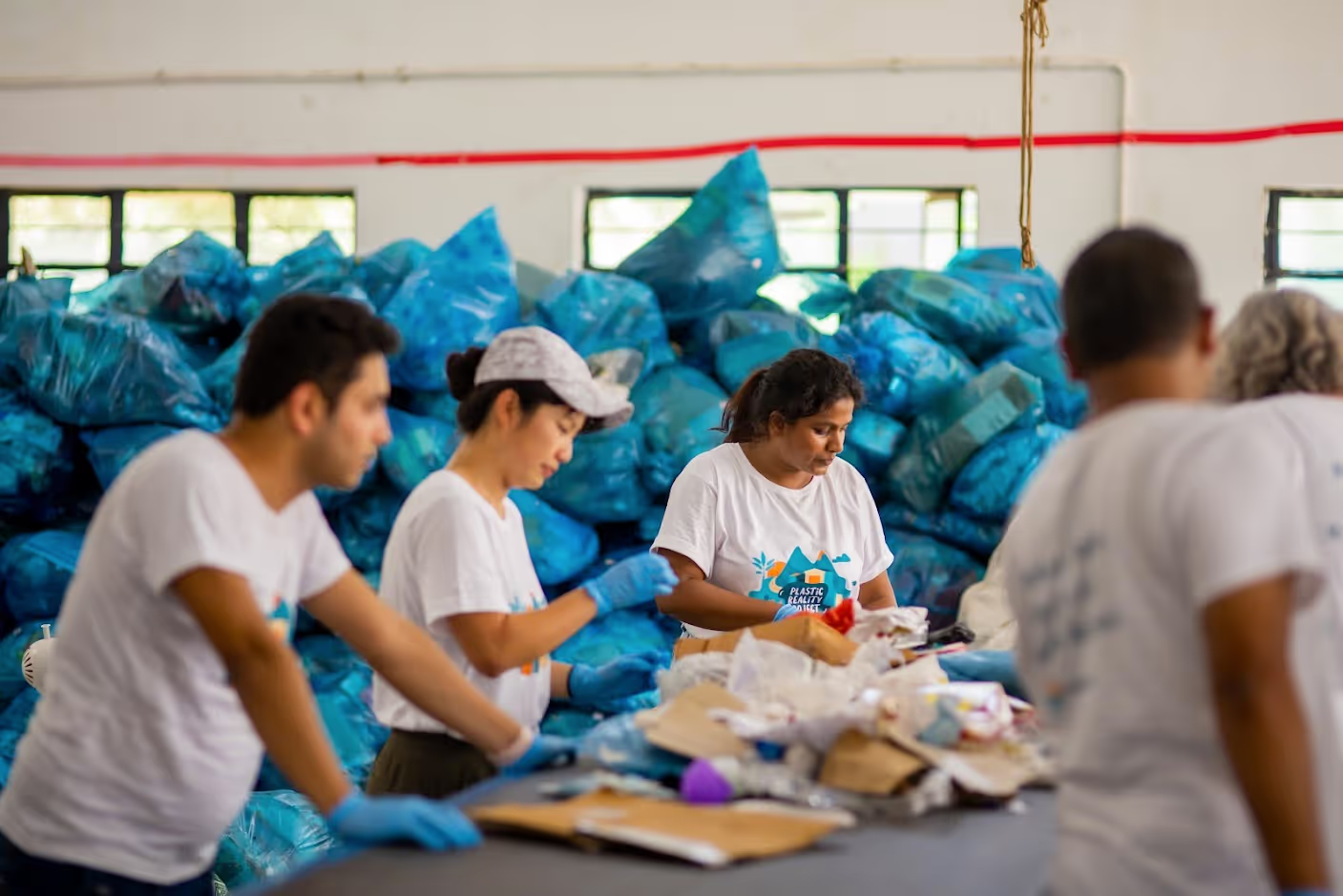
Halfway through the week, the group traveled from Chennai on the east coast of India to to Kerala in the west, providing a shift in perspective from urban to rural waste management
Jabir Karat, Founder and CEO of Green Worms proudly tells the story behind rePurpose partner Green Worms’ journey to attendees.
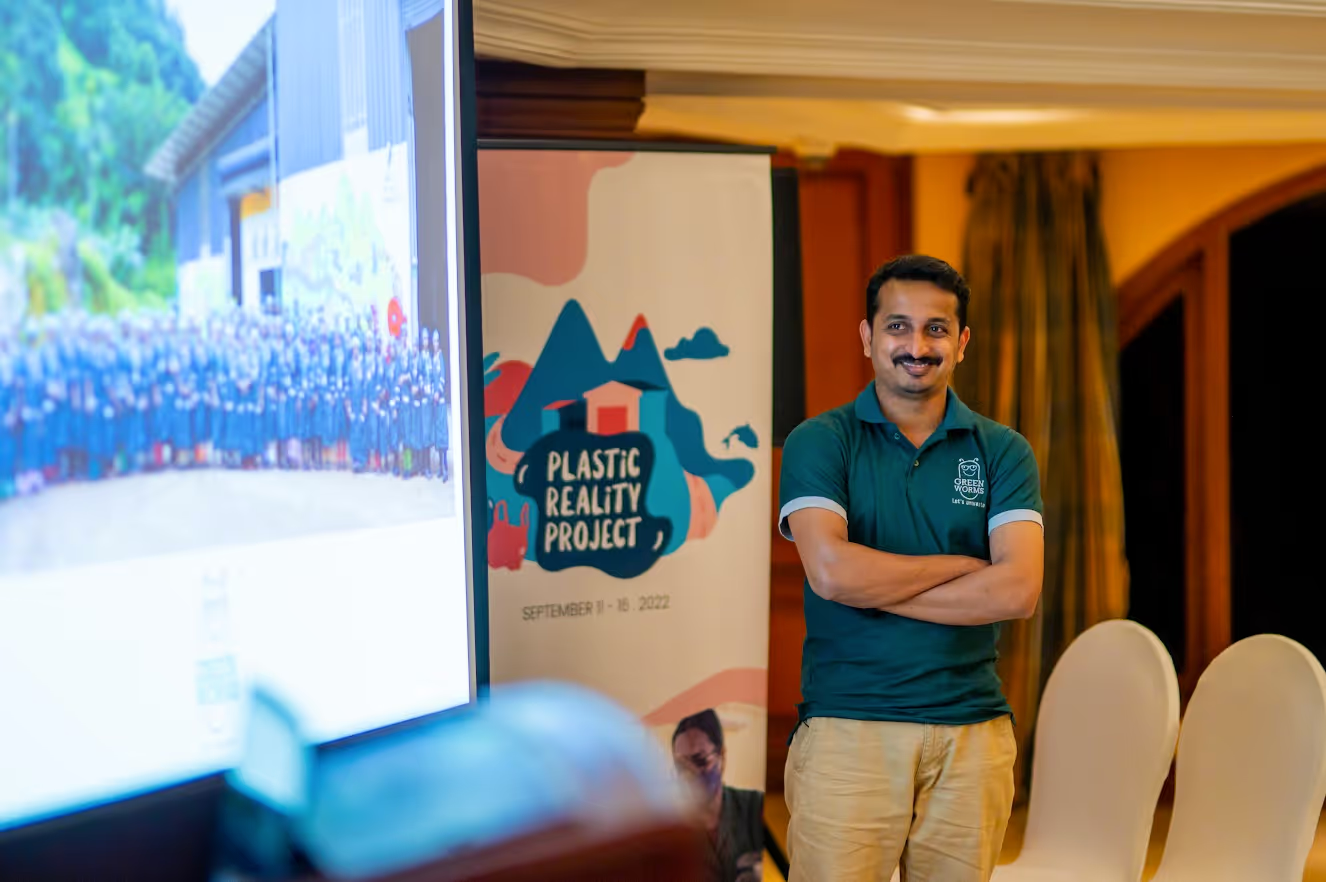
In Kerala, attendees shadowed waste workers on their residential collection route in Thiruvambady to observe the household waste collection process.
The Haritha Karma Sena (Green Army) are female waste workers, supported by Green Worms. They provide door to door waste collection in areas inaccessible to vehicles. They visit residential homes monthly to collect each family’s plastic waste. This represents a shift in thinking for many households who previously would have dumped or burned waste, but now segregate their waste in preparation for collection.

Emerson Collective Senior Photographer Barbara Kinney – an award-winning photojournalist and former White House photographer – meets some of the Haritha Karma Sena during the visit to Thiruvambady Material Collection Facility (MCF) in Kerala.

The conveyor belts pause for a short while while the waste workers perform a Sinkari Melam - traditional dances and music - at the Green Worms MRF at Thamarassery, Kerala.

The welcome for attendees was not complete without a Sadya – a traditional vegetarian feast comprising multiple curries, chutneys and other dishes served with rice on banana leaves.
Attendees and waste workers sit together to enjoy the spectacular Malayali meal on the floor of the facility.

Later in the day, workers return to their sorting duties and attendees tour the active facility.
After several rounds of material sorting, low value plastic is the only material left. From there it is baled (compressed) and taken for co-processing.
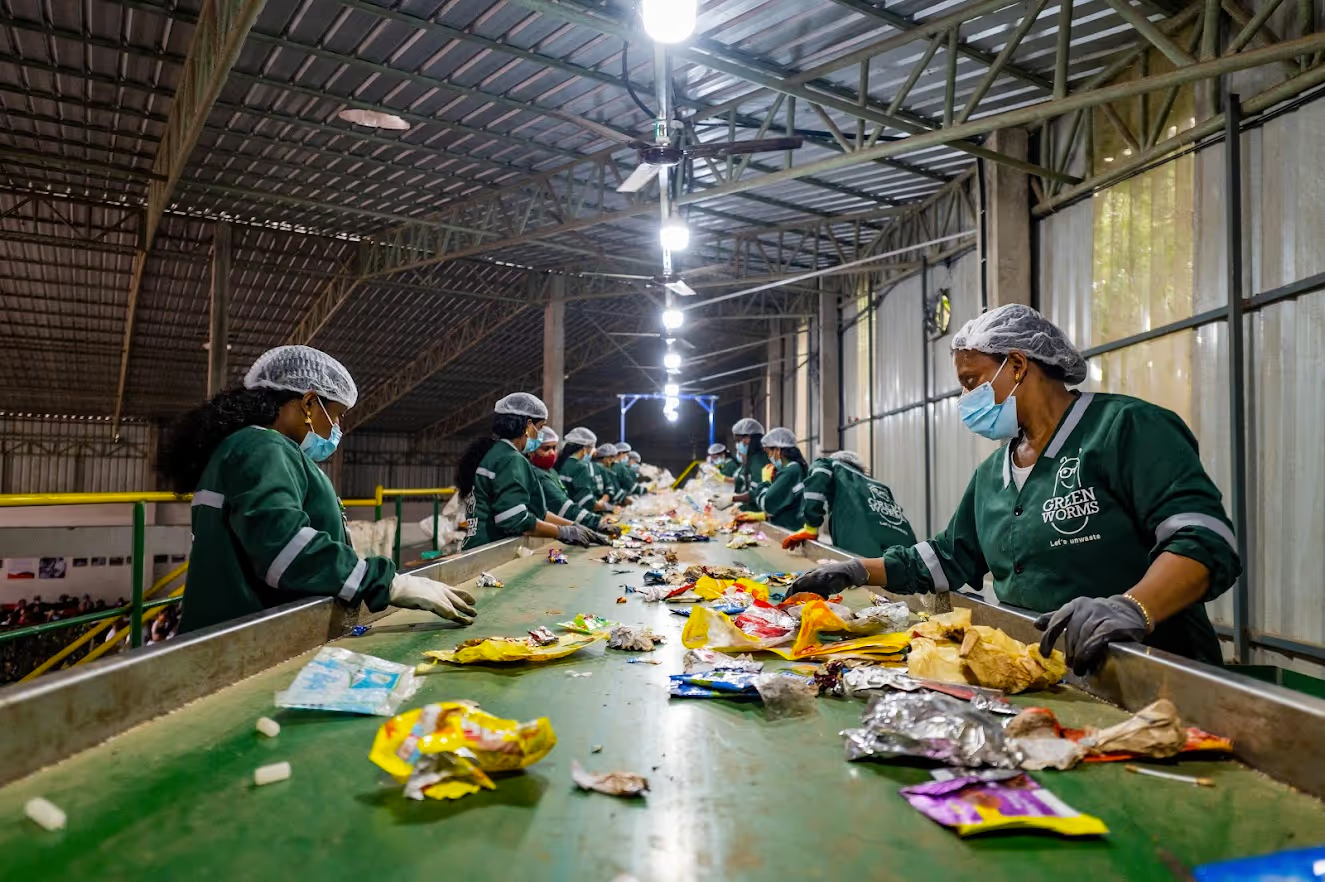
Back in Kozhikode, at the final session of the Plastic Reality Project – the “closing circle” – Doreen Wong reflects on her experiences at the Plastic Reality Project 2022.

An innovative card game is played as part of the final session. Each team aimed to use their imaginary budget to curb plastic leakage by at least 80% by 2040.
The ‘Plastic Action World Council’ game was created by Tamara Nameroff, rePurpose Global’s VP of Sustainability – based on real life data from SystemIQ – with the aim of showing what was achievable if stakeholders work together.

A Kathakali dance-play is performed for attendees in Kozhikode, to mark the end of the Plastic Reality Project.
Kathakali is a classical dance form native to Kerala. The dancers typically undergo years of training in order to perform, and it can take 3-4 hours just to get into the outfits.

Thank you to all attendees, speakers, waste workers, and rePurpose Global staff for making this such a memorable experience.


.avif)
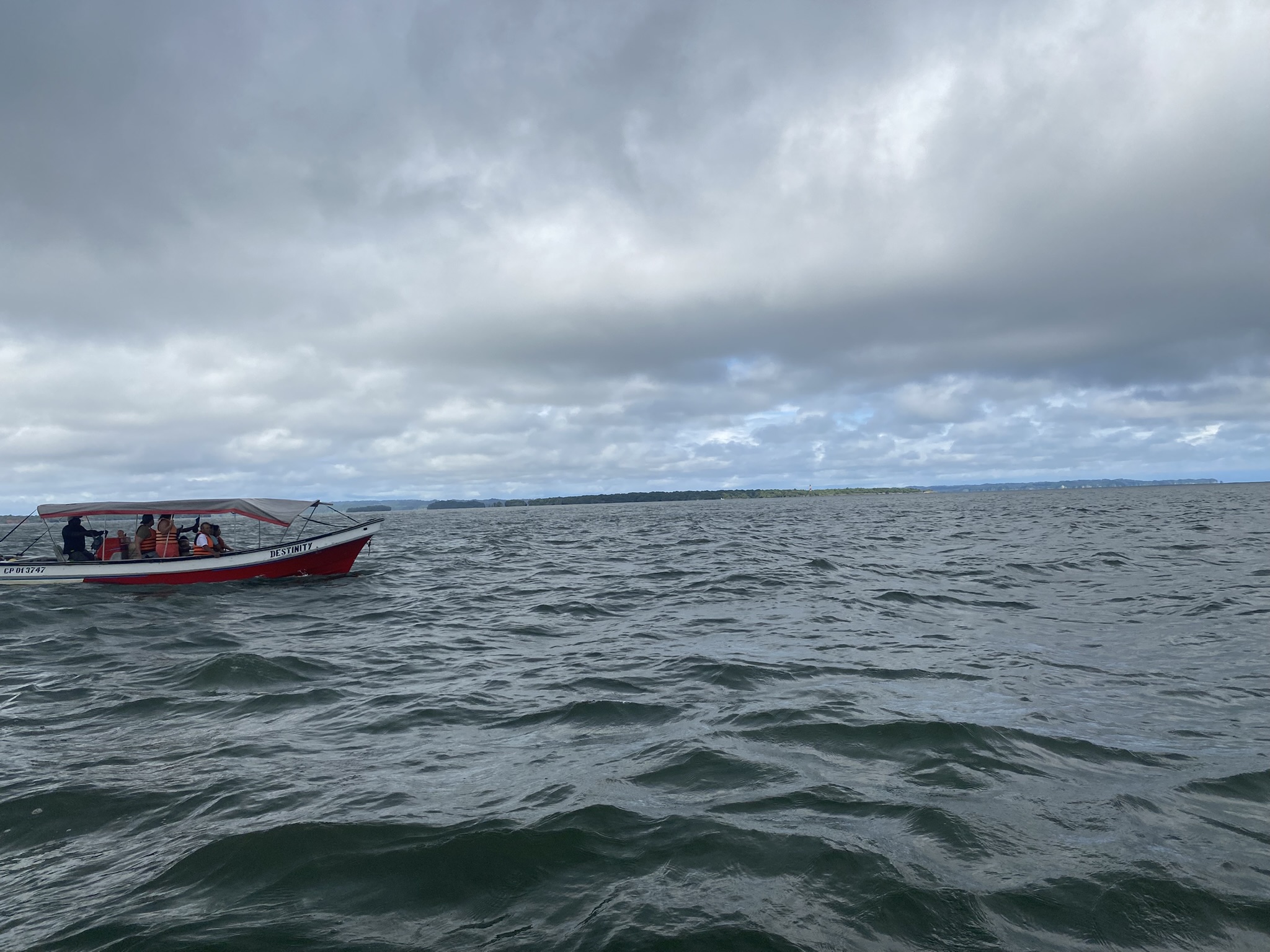
.avif)
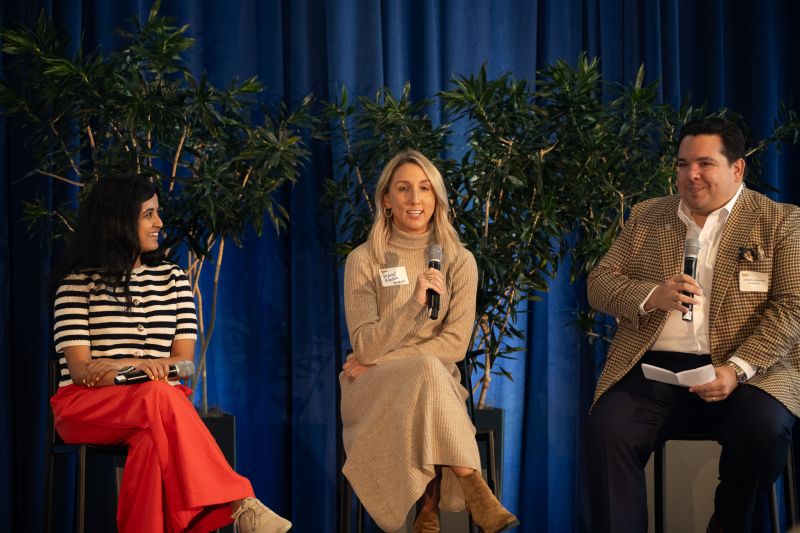
.avif)






